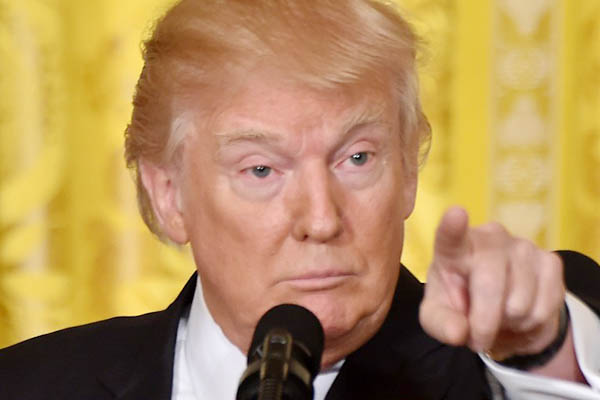
Nicholas Kamm—AFP
New measures aim to detect ‘fraud and abuse’ in program favored by tech sector.
The Trump administration has unveiled steps to limit an immigration visa program for skilled workers often used by Silicon Valley to attract tech workers.
The moves include new measures announced on Monday to detect “fraud and abuse” in the H-1B visa program, and a warning by the Justice Department to companies not to discriminate against U.S. workers.
Guidelines released last week will require a stricter definition of the skill levels for computer programmers to qualify for the temporary visa program for jobs that cannot be filled by Americans. These moves come as the United States opens up its annual allotment for the H-1B visa program—a total of 85,000 slots that are quickly snapped up each year, notably by tech firms—and after President Donald Trump’s campaign pledge to limit immigration that takes away jobs from Americans.
Employers may face prosecution if they discriminate against U.S. workers in favor of H-1B visa holders, officials said. “The Justice Department will not tolerate employers misusing the H-1B visa process to discriminate against U.S. workers,” said acting assistant attorney general Tom Wheeler in a statement. “U.S. workers should not be placed in a disfavored status, and the department is wholeheartedly committed to investigating and vigorously prosecuting these claims.”
The temporary H-1B visa is for three years and may be renewed for another three years.
Separately, U.S. Citizenship and Immigration Services (USCIS) said it would take “multiple measures to further deter and detect H-1B visa fraud and abuse.”
“The H-1B visa program should help U.S. companies recruit highly-skilled foreign nationals when there is a shortage of qualified workers in the country,” the agency said in a statement on Monday. “Yet, too many American workers who are as qualified, willing, and deserving to work in these fields have been ignored or unfairly disadvantaged.”
The agency said it would take “a more targeted approach” in visits to employers with H-1B visas and would investigate companies that “abuse the H-1B visa program” to depress wages of U.S. employees.
H-1B visas go to scientists, engineers, computer programmers or specialty occupations to fill needs—with heavy demand in the technology sector, where firms say there is a shortage of qualified workers. But some critics argue many of the visas are snapped up by I.T. outsourcing firms, which end up sending jobs overseas, largely to India.
The visa has drawn particular attention since Trump’s election, with White House spokesman Sean Spicer suggesting that presidential and congressional action could be taken on H-1B visas as “part of a larger immigration reform effort.”
